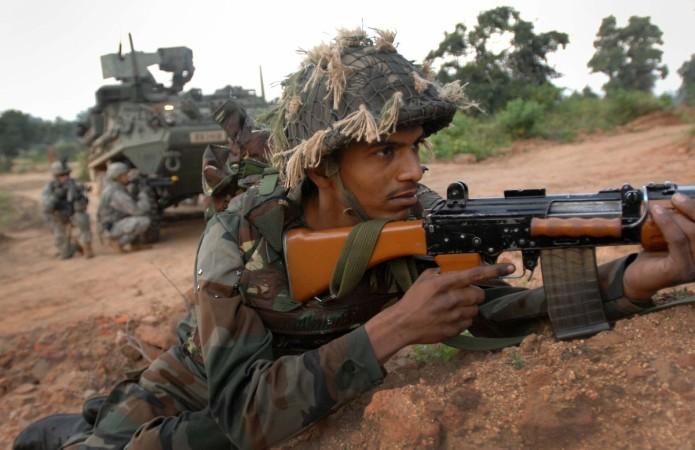![Three ISIS terrorists were killed in an encounter on Monday morning. [Representational Image] indian army](https://data1.ibtimes.co.in/en/full/682891/indian-army.jpg?h=450&l=50&t=40)
Manipur has been at the centre of a controversy related to Armed Forces Special Powers Act (AFSPA) with the Supreme Court directing the Narendra Modi government to probe over 3,000 cases of encounters.
Now, a group of more than 350 officers of the Indian Army has approached the apex court to uphold the AFSPA in the volatile states of Northeast and Jammu and Kashmir. What has made such a large group of the Indian Army to approach the Supreme Court? Let's find out.
Fake encounters in Manipur
In March 2009, 12-year-old Mohammed Azad Khan was killed just 70 meters away from his house in Manipur, allegedly by the Assam Rifles and Manipur Police. He was shot four times and succumbed to bullet injuries. But the men who killed the kid never faced any prosecution due to coverage provided under AFSPA.
Major Vijay Singh Balhara was leading his troops when the "encounter" took place. In the enquiry under Hegde Commission, the officer testified that acting on intelligence received from his source, his team from the 21 Assam Rifles and the Manipur Police had reached Azad's house. They were told that two-three heavily armed terrorist had come to extort money.

The encounter went on for "two-three" minutes and the boy was beaten and shot to death. The family of the boy told the court they could see their son being beaten from inside, in fact, the neighbours also gave the same version of the story.
Hegde Commission ruled in favour of the family and said that "it was not an encounter and no efforts were made by the security forces, either to capture or disable the suspect."
For last 13 months, a Special Investigation Team (SIT) of the CBI has been probing the 95 shortlisted cases of alleged fake encounters. Last month, the CBI filed a first investigation report (FIR) in the case. The charge is "murder with common intention."
Interestingly, this is not the first case of fake encounter. This is the second FIR naming high-ranking army officers for their role in alleged fake encounters.
An FIR against Major Aditya Kumar has also been filed for which his father has given a petition in Supreme Court. The mere naming of Major Balhara, who is a Colonel in the Indian Army, has sparked a major show of strength by officers of the Army who have filed a petition in the SC seeking protection against such enquiries.

















